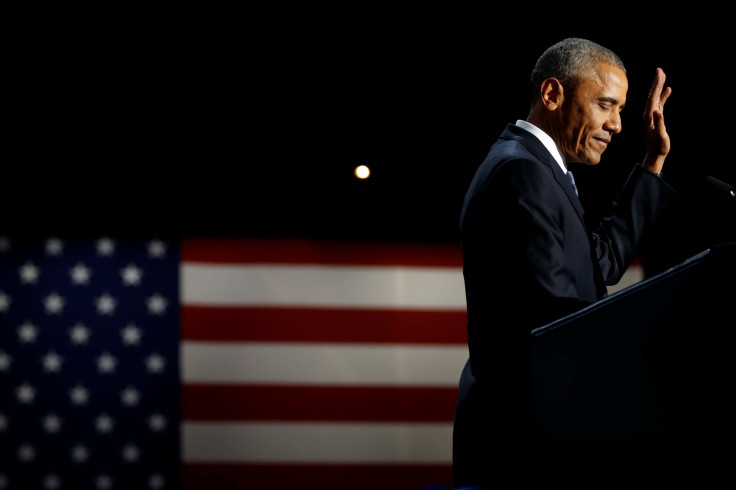What Did Obama Accomplish As President? Economy, Social ‘Change,’ Race Relations Discussed In Pew Research Center Report

“Change” was, and over the last eight years, the main operative word when discussing the legacy and administration of President Barack Obama. In 2008, Obama was elected as the first black president behind a campaign that promised monumental shifts in American culture and government.
But did Obama, who will be succeeded this week by Republican President-elect Donald Trump, truly change the country? If so, was it for better or worse? Did Obama affect the kind of change he had hoped for?
President of Pew Research Center Michael Dimock examined Obama’s legacy and how the country has shifted, or regressed, under Obama in an essay published last week. Dimock broke down Obama’s impact in myriad ways, including the growth of political partisanship and the shifting population demographics both with minorities and millennials. The essay also touched on how Americans get their news, specifically the rise of the ultimate delivery person, social media.
According to Pew research, change certainly occurred under Obama, but the results could be viewed as both coincidental and directly attributable to the 44th president.
“Profound social, demographic and technological changes have swept across the United States during Obama’s tenure, as have important shifts in government policy and public opinion,” Dimock wrote before delving into how the economy, race relations and other major issues have fared under Obama.
The economy, nearly obliterated in the 2008 financial crisis, and its excellent improvement under Obama’s watch will likely be a feather in his cap. Unemployment went from 10 percent in late 2009 to five percent today and the stock market has reached record highs, Dimock pointed out.
However, the middle class is still struggling and income inequality rose to its highest point since 1928.
When it comes to social issues, change certainly came during the Obama administration. Eight states and the District of Columbia legalized recreational marijuana use, while same-sex marriage was legalized following the Supreme Court’s decision in 2015, according to Dimock.
Race relations, especially over the last two years have fallen. In April 2009, Pew research found a 44 percentage point difference between Americans who believed race relations were “generally good” compared to those who considered them “generally bad.” In the years since those results have steadily declined, reaching a gap of negative 27 percent in May 2015, though last May it was only negative 4 percent.
America as a whole is also experiencing a shift of the voting population. Namely, millennials now outnumber the “Baby Boom” generation and almost one-in-three voters in November’s election were black, Hispanic, Asian or another racial or ethnic minority, which allowed Pew to label it the most diverse election in the country’s history.
Dimock and Pew also suggested a divide among Democrats and Republicans, focusing mostly on their age and education gaps.
“Democratic voters are becoming less white, less religious and better-educated at a faster rate than that of the country, while Republicans are aging more quickly than the country as a whole. Education, in particular, has emerged as an important dividing line in recent years, with college graduates becoming more likely to identify as Democrats and those without a college degree becoming more likely to identify as Republicans,” Dimock wrote.
Obama also allowed the U.S. to regain some much-needed support from foreign countries and their people following the invasion of Iraq under George W. Bush and the "War on Terror.”
Top European powers like Germany and France immediately praised Obama’s election win in 2008, with as high as 86 and 84 percent, respectively, expressing confidence he will “do the right thing.”
The Pew report ends by a forward look at the incoming Trump administration and admits that Obama’s true effect, or "change," might not be realized until much later in the country’s history.
© Copyright IBTimes 2024. All rights reserved.











